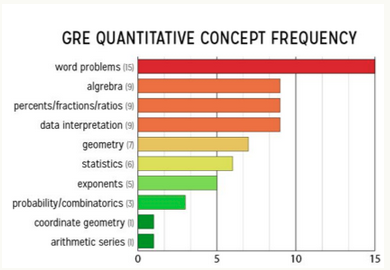How do you feel about math?
Let’s take a minute to think about math and how we feel about it. Good memories or bad? Or both? If I were to draw an analogy about math and anything else, it would be a foreign language. You can’t forget what you learned in arithmetic and expect to do well in algebra, just like you can’t forget how to conjugate French verbs and expect to write a full sentence. Math requires a great foundation and, once that foundation is built, everything else comes after. I am here to help you build that foundation. I am here to tell you that math isn’t supposed to be scary or cryptic or over your head and I’m not just saying this because I am a tutor, I am saying this because I have been there, staring at a problem and blanking, putting the pencil down, getting scared, when another second spent ‘braving the storm’ made all the difference.
Start with a resolution to build good study habits
The best way to build this math foundation is to first and foremost build good study habits. Allot 1-2 hours a day to study for math.
- Be honest with yourself - How much are you actually studying? How much uninterrupted time do you have? This is important. When you tell yourself you are going to read these arithmetic chapters, make sure you do them.
- Trick yourself to study more - A trick I find for improving motivation is planning your study sessions right before a fun activity. Say you are going to movies at 8, plan to study from 4 to 7:30. Then the movie feels like a reward.
- Make a reasonable plan. - Don’t draft up a 3 months' plan right away, start with a week, then go to two weeks, then a month. Find your pacing first before you dive in because finding a pace you’re comfortable with will reduce burn out and will boost motivation.
If the GRE math section were a person and that person were to put out an OK Cupid profile, most everyone would be turned off by how demanding that person was. This person wants to go on four different kinds of dates (4 multiple-choice question types) and each date must be completed in an allotted amount of time (timed sections) and each date after that will only get harder if you do well on the first time (adaptive sections). Not to mention that there is no rhythm or reason to the date (questions don’t go from easy to hard).
There is no question that the GRE math section is a challenge. But don’t judge a book by its cover! In my opinion, solving a math question is one of the most rewarding feelings ever. Nerdy, I know, but it is really like unlocking a puzzle. You try so many different keys and finally, finally, you find the right one.
Math Overview: What to Expect
So let’s pull off the band-aid. To make this as painless as possible, I will give you the anatomy of the GRE math section in bullet points because that is usually how I like the facts delivered to me--fast, straightforward, and as easy as possible.
- 30 minutes per section
- At least 2 sections, at most 3 (one ungraded)
- 4 different question types, somewhat even distribution
- Quantitative comparisons
- Multiple-choice—select one answer
- Multiple-choice—select one or more answer
- Numeric entry (aka SAT grid ins)
- 2 different kinds of questions
- Discrete/Standalone
- Data interpretation (questions that come in mini sets)
- You get an onscreen calculator (but whether this will be helpful to you or not is really up to how you use it)
Content: What Do I Need to Know?
Okay, so now that you know the structure, let’s talk meat and content and what you really will be responsible for knowing. I just want you to remember two points.
The quantitative sections test:
Basic mathematical skills in arithmetic, algebra, geometry, data analysis through to a standard 10th grade level. And, we will go through these math topics one by one.
The quantitative sections do not test:
Trigonometry. I.e SOH CAH TOA
Okay, I lied, one more point, but it is visually very pretty to look at!
This is a great graph...and the first thing you should study:
Note the percentage values of each of these areas. Think about the score that you want to get. Think about if to get that score, do you need to pour your heart and soul into arithmetic series? Coordinate geometry? While these might be worthy math topics of pursuit, they are low yield.

I mean it. Study this graph and put it into perspective with your own goals. Also, as an aside: the data analysis section of this test will ask you to study and interpret graphs like this (bar, line, circle, etc).
This is a good start - a nice way to dip your toes into the quant section. Good luck!

Comments